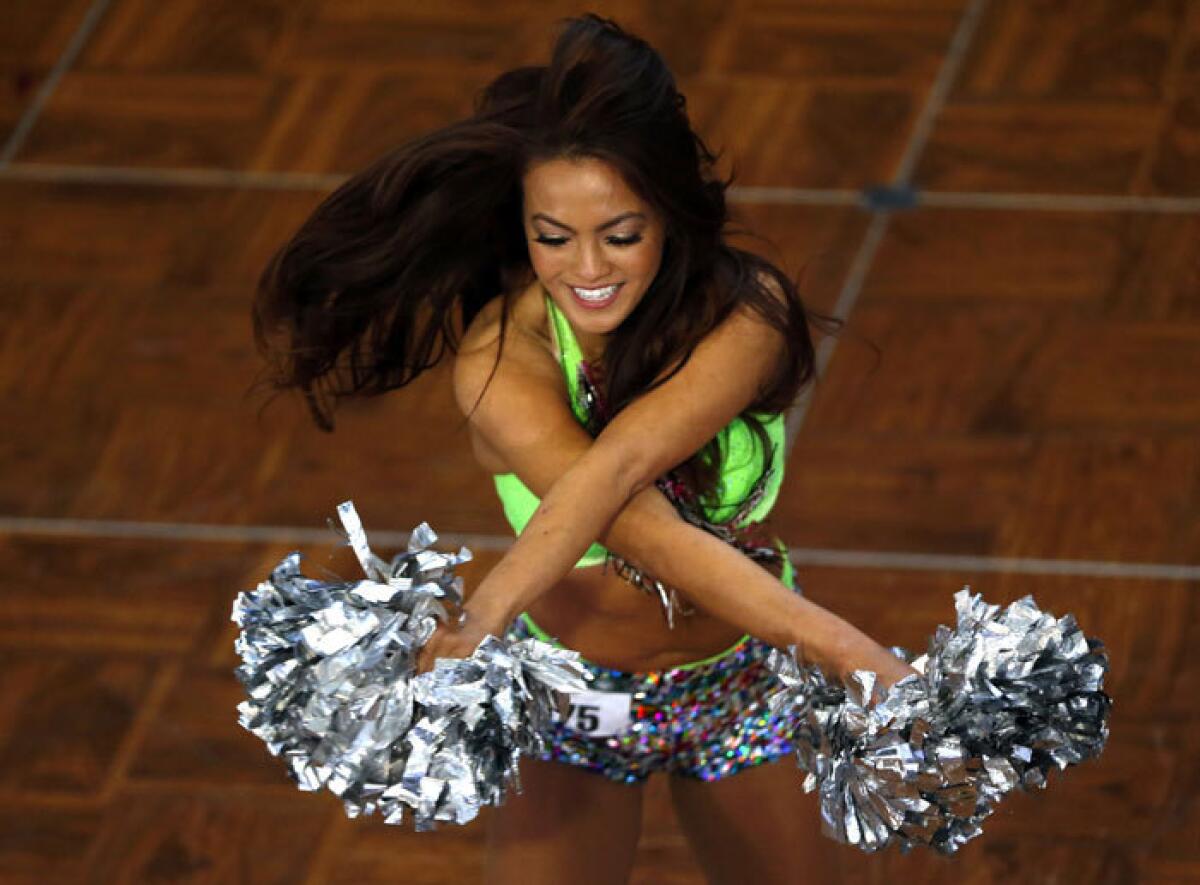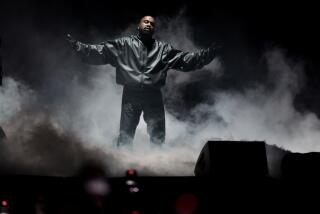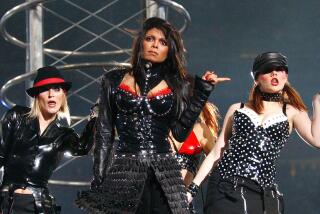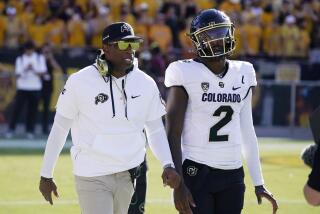Cheerleader revolt against NFL grows with lawsuit against Jets

The Great NFL Sideline Rebellion of 2014 strikes again.
A former professional cheerleader for the New York Jets filed a wage-theft lawsuit against the team Tuesday, making the Jets the fourth NFL team this year to be sued by cheerleaders for allegedly violating state labor laws.
Unlike the Buffalo Jills, Jets cheerleaders did not have to pass a “jiggle test.” No one told them how often they had to change their tampons or instructed them on using mouthwash (“Bad breath is offensive,” says the Jills handbook. “Always keep it in check.” )
But just like the Jills, the Cincinatti Ben-Gals and the Oakland Raiderettes, members of the Jets Flight Crew earn far less than minimum wage for the many hours they put in before and during football season. Krystal C., 25, who spent the 2012-13 season as a rookie cheerleader for the Jets Flight Crew, filed a class-action lawsuit in New Jersey, where the Jets practice, alleging that the team failed to pay her for all the hours she worked.
Krystal C. alleges in her lawsuit that although she earned $150 a game, plus $100 for outside appearances, she was not paid for thrice-weekly practices or rehearsals, or for compulsory participation in the for-profit cheerleading camps sponsored by the Jets.
For the entire season, Krystal earned $1,800. That comes out to around $3.77 an hour, according to her attorney, Patricia Pierce. It would be even less if Krystal deducted the $45 per week she spent on mandatory straightening of her curly hair. Or the $80 she spent on the “motivational gift” she was required to give each member of the 40-woman squad, and its director. (She gave them homemade picture frames, at a cost of $80.)
“It’s like you end up virtually paying them for the privilege of being a cheerleader,” Pierce told me. “The failure to pay the women who work as cheerleaders a legal wage for all of the hours that they work is clearly an NFL-wide problem that needs to change.”
And perhaps it will now that a few cheerleaders have taken a first step.
“To the casual observer, it looks like there is a bug going around,” said Michael LeRoy, who teaches law and labor and employment relations at the University of Illinois College of Law. “Why is this happening now? I think that these cheerleaders have chosen to be silent, or accepted their circumstances, and when the first group came forward, others felt more comfortable taking action.”
Though the contours of these cases are roughly the same -- cheerleaders allege that they are being ripped off by rich teams that can easily afford to pay them -- the New York Jets explicitly consider their cheerleaders “employees,” not independent contractors like other cheerleaders, which, as LeRoy said, puts Krystal C. in a stronger position for these claims.
Also, the Flight Crew contract says any disputes will be adjudicated by the courts. By contrast, the Oakland Raiders have argued that the former Raiderettes do not have the right to sue the team because their contract includes a binding arbitration clause. The arbitrator would be NFL Commissioner Roger Goodell, who, by the way, can hardly be considered impartial, as he is employed by the teams’ owners, who pay him $44 million per year.
The Raiderettes’ attorneys, Leslie Levy and Sharon Vinick, will vigorously dispute the arbitration clause when they appear in Alameda County Superior Court on May 14. Forced arbitration agreements, which overwhelmingly benefit employers, are under attack by Democrats in Congress and by labor advocacy groups.
Though the clauses are generally enforceable, LeRoy said, “California state law is more protective of employees when they are forced into arbitration. A California employee has a better chance of getting out of a mandatory arbitration clause.”
A team spokesman on Tuesday said the Jets would have no comment on the lawsuit.
The larger question, of course, is why it took the cheerleaders so long to challenge their exploitation in the first place.
“I heard about the lawsuit with Lacy T. and the Raiderettes, and it’s something that completely shocked me,” Krystal told me Tuesday morning. “I thought I was the only one that felt like this. She had so much courage to be the first cheerleader to stand up for this cause. She inspired me.”
Why did Lacy T. act? She also had been a professional cheerleader for the NBA’s Golden State Warriors, who paid her a fair wage not just for games, but for all practices and outside appearances as well. She was taken aback, she told me in January, when she realized how many hours the Raiderettes expected her to work for free.
Cheerleaders aren’t really asking much.
Sure, they operate in a world where men are the stars and women are the supporting players.
It’s a retrograde environment, where cheerleaders are both exploited and protected. For instance, the five former Buffalo Jills cheerleaders who sued the team in April allege that they were forced to attend an annual charity golf tournament where they were “auctioned off” to male bidders, yet their last names were kept private to protect them from overly avid fans. (The Bills responded to the lawsuit by suspending its cheerleading operation.)
But despite the obvious sexual undertones to the job, cheerleaders are professional athletes too. They are extraordinary dancers with years of training, on-the-job injuries and a short shelf life.
At the very least, especially in a league in which the average team is worth $1.17 billion, paying cheerleaders less than the hot-dog vendors and ticket takers ought to be against the law.
Hey wait! It is against the law.
The courts just need to say so.
More to Read
Sign up for Essential California
The most important California stories and recommendations in your inbox every morning.
You may occasionally receive promotional content from the Los Angeles Times.











